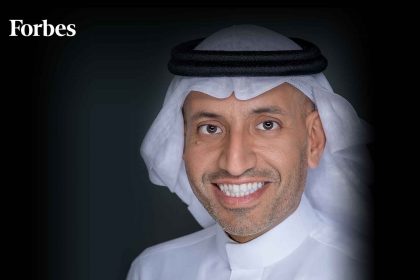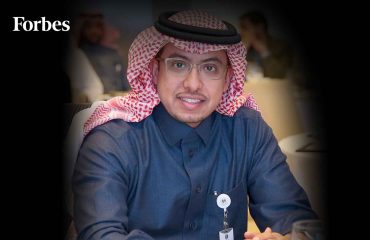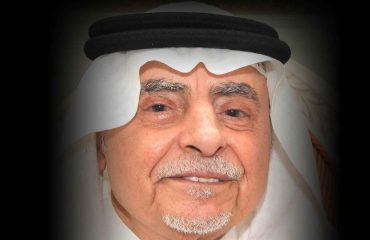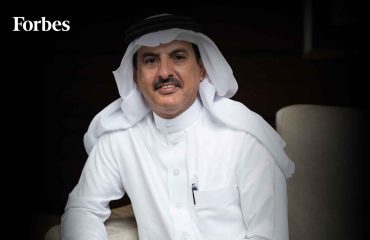
Dr Ibrahim Almojel, CEO of the Saudi Industrial Development Fund (SIDF), explains the purpose and growth journey of one of the kingdom’s most important funds.
SIDF is one of the region’s oldest industrial development funds. What are its key goals and how have they developed over the years?
Established in 1974 by the government with a capital of $133 million, SIDF has been supporting Saudi’s manufacturing industry for 46 years by providing medium and long-term financial loans, advisory solutions, and human capital development of the ecosystem.
Today, as a financial enabler of industrial transformation, SIDF has expanded its bylaws to extend its support to a number of promising sectors, raising its capital to $28 billion in 2019. This allows the fund to provide new tailored packages of financial services and products that meet the needs of the private sector in the industry, mining, energy and logistics sectors under the National Industrial Development and Logistics Program (NIDLP). SIDF is the financial enabler of the NIDLP, which is one of the largest programs for Vision 2030, aiming to attract investments and transform the kingdom into a leading industrial powerhouse and a global logistics hub.
Other than financing, what other services does SIDF provide to investors in the kingdom?
The primary service we offer is lending, however another key role is the development of human capital in Saudi, including employees, clients, or leaders in the public and private sector. We offer learning programs in collaboration with global strategic academic partners such as Chase Manhattan Bank, the Stanford Center for Professional Development, Fitch Learning, and the London Business School, and delivered by the SIDF Academy. As a result, SIDF has fed the industrial landscape with leaders either as alumni or entrepreneurs who contributed to the advancement of the industry of the country.
We also provide advice from subject matter experts in the technical, marketing, and financial fields to clients and companies interested in participating in the kingdom’s ambitious economic transformation program. We work with our clients to enhance projects and ensure maximum economic development and client success.
What makes Saudi attractive as an industrial hub globally? How is SIDF engaging with international companies to help them set up their manufacturing hubs in Saudi?
Saudi Arabia holds exciting potential and opportunity for investors. A G20 economy with a young, highly educated population of more than 30 million people located at the heart of the Arab world, the kingdom has the geographical advantage of being a connector between Asia, Africa, and Europe. With major ports on each side of the country, the kingdom is building a highly interconnected ecosystem backed by a robust logistics infrastructure and bountiful natural resources. Saudi Arabia is considered the largest economy in the Middle East and the largest market in the Gulf region.
Working within a defined strategy, the government is offering a number of incentives such as technical, fiscal or administrative procedures to attract leading international companies in the industrial field.
And as more entities learn of the kingdom’s open-door investment policy, SIDF has established engagement with international companies. For instance, SIDF has approved an $840 million loan to Chinese-owned Pan-Asia to develop a petrochemical facility in Jazan City for Primary and Downstream Industries (JCPDI).
The launch of the NIDLP has seen SIDF’s capital increase from about $17.3 billion to $28 billion. What are some of the new initiatives that you have launched under this program, and how do they contribute to Saudi’s economy?
In January 2019, the NIDLP published a comprehensive plan that identified potential growth, commitments and aims for 2030. To adapt to its role as a financial enabler of the program, SIDF has expanded to cover new sectors such as energy, mining, and logistics services.
SIDF also introduced new products beyond project financing, including a working capital financing program for investors in new businesses that covers incremental operational expenses for projects, as well as acquisition finance. The latter provides financial backing for a number of items, including the acquisition of specific technology and manufacturing methods, intellectual property, suppliers and clients, and competitors.
To support the renewable energy sector, SIDF lends financial assistance and provides incentives to manufacturers of renewable energy components and to project developers in industrial, commercial, and agricultural sectors.
In efforts to further support the SME sector, SIDF offers an SME scale-up program that provides financing for successful SMEs that have been in operation for at least two years in value-added sectors, to further contribute to the economic growth of the kingdom.
What steps are you taking to increase private sector participation in Saudi’s manufacturing industry?
SIDF has continued to play a role as a supporter and enabler to the private sector within the priority sectors that we finance. Our success is defined by the private sector’s success and in order to increase investments in the manufacturing industry we work hand-in-hand with the private sector to ensure we get a better understanding of the markets’ needs. Once we get that better understanding, it helps us to create and develop more tailored products and programs that address these particular gaps in the market today.
What was the impact of COVID-19 on the manufacturing sector, and what role has SIDF played to support the private sector?
In March 2020, the Saudi government announced an urgent financial stimulus package exceeding $32 billion to mitigate the economic effects of the COVID-19 outbreak. In line with that we have launched initiatives with a total value exceeding $1.2 billion aimed at supporting the private sector impacted by COVID-19. This includes the deferment and restructuring of installments for SMEs in 2020, in addition to large industrial companies that have been affected by COVID-19, with a total amount exceeding $960 million.
We have also launched an initiative to finance operating expenses of SIDF’s SME clients, and raw material costs for all medical and pharmaceutical factories to continue supplying necessary medical products during the COVID-19 pandemic due to expected high demand with the total approval amount exceeding $260 million. SIDF also offers loans to finance fixed-asset costs to factories that produce products related to the prevention and treatment of COVID-19 to meet the anticipated local demand.
Source: Forbes Middle East




